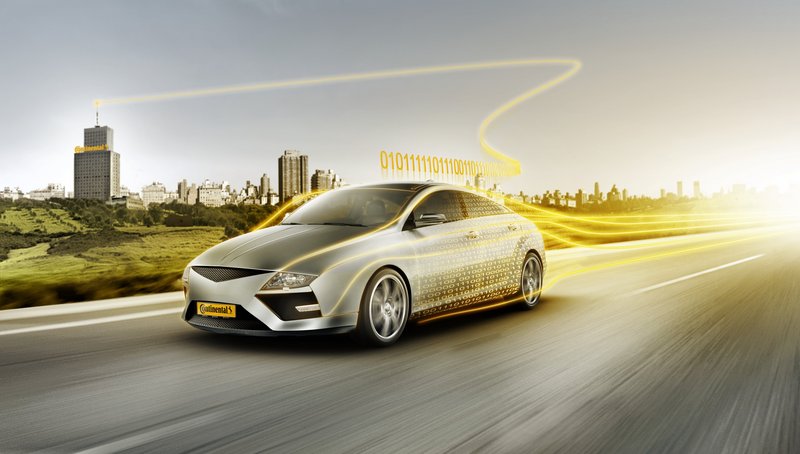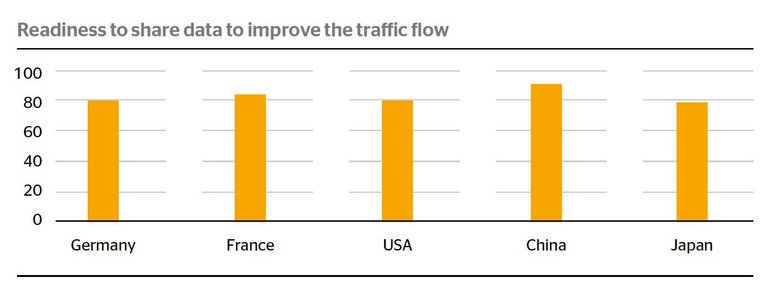Data is willingly shared when there is a clear benefit
In the countries surveyed – Germany, France, the USA, Japan and China – the majority of drivers are happy to accept the storage, transfer and processing of driving data and personal data if this serves to clarify the circumstances of an accident or improve traffic flow. This attitude is also evident in other countries, where approval rates have remained stable compared to the 2018 survey.
In general, the willingness to accept a black box as storage of driving data has increased slightly in all countries over the past two years. The Germans are still the most critical of the development, i.e. the number of skeptics is highest here compared to other countries.
In China, regular drivers in particular want to see further development of connectivity between vehicles and infrastructure to optimize traffic flow or avoid accidents.
Globally, the number of skeptics among drivers in this area is much lower than the number of supporters, with a particularly large number of “fans” in China. Even in Japan and Germany, however, where people have traditionally been more skeptical about sharing their own data than in many other countries, a very high degree of openness to data-based models can be observed – if the benefits for the user are recognizable.
A distinction is made by all drivers when it comes to checking individual driving data for rule compliance. Worldwide, a clear majority remains cautious to skeptical about this technology. The situation is different when data sharing is used for traffic optimization and accident avoidance. In this case, a clear majority agrees.
Download the brochure "From Driver to Passenger: Attitudes Toward the Technological Development of the Car - pdf (378KB)".



